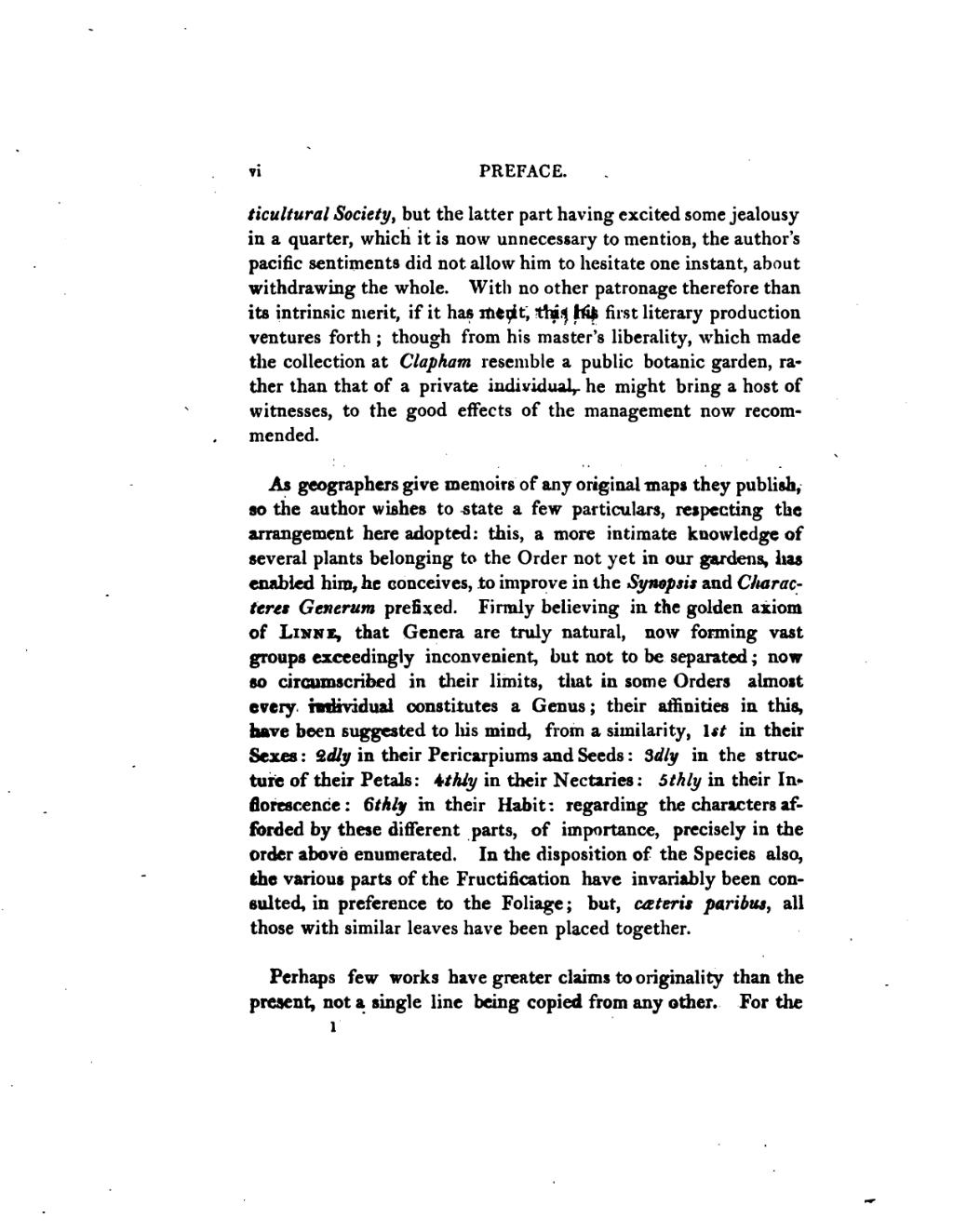ticultural Society but the latter part having excited some jealousy in a quarter, which it is now unnecessary to mention, the author's pacific sentiments did not allow him to hesitate one instant, about withdrawing the whole. With no other patronage therefore than its intrinsic merit, if it has merit, this his first literary production ventures forth; though from his master's liberality, which made the collection at Clapham resemble a public botanic garden, rather than that of a private individual, he might bring a host of witnesses, to the good effects of the management now recommended.
As geographers give memoirs of any original maps they publish, so the author wishes to state a few particulars, respecting the arrangement here adopted: this, a more intimate knowledge of several plants belonging to the Order not yet in our gardens, has enabled him, he conceives, to improve in the Synopsis and Characteres Generum prefixed. Firmly believing in the golden axiom of Linne, that Genera are truly natural, now forming vast groups exceedingly inconvenient, but not to be separated; now so circumscribed in their limits, that in some Orders almost every individual constitutes a Genus; their affinities in this, have been suggested to his mind, from a similarity, 1st in their Sexes: 2dly in their Pericarpiums and Seeds: 3dly in the structure of their Petals: 4thly in their Nectaries: 5thly in their Inflorescence: 6thly in their Habit: regarding the characters afforded by these different parts, of importance, precisely in the order above enumerated. In the disposition of the Species also, the various parts of the Fructification have invariably been consulted, in preference to the Foliage; but, cæteris paribus, all those with similar leaves have been placed together.
Perhaps few works have greater claims to originality than the present, not a single line being copied from any other. For the
